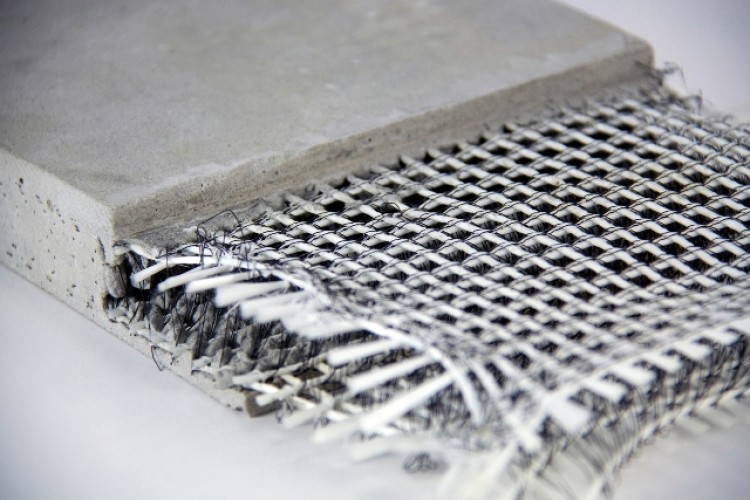Composites: The Future of Sustainable Construction Materials
Composites: The Future of Sustainable Construction Materials
Blog Article
Discovering the Uses and Advantages of Recycled Composites in Modern Industries
In today's swiftly evolving commercial landscape, the utilization of recycled compounds has amassed enhancing focus for its potential to redefine traditional production methods. The amalgamation of recycled products with advanced composite technologies presents an appealing opportunity for improving sustainability, strength, and cost-efficiency across various fields. As industries look for innovative remedies to deal with environmental issues and boost operational efficiencies, the unification of recycled compounds becomes a compelling alternative. This shift towards lasting techniques not only aligns with global preservation initiatives however additionally supplies a myriad of advantages that hold the trick to shaping the future of contemporary manufacturing methods.
Ecological Advantages of Recycled Compounds
The application of recycled composites in contemporary markets uses substantial ecological advantages, adding to the decrease of waste and the preservation of all-natural sources. By including recycled compounds into manufacturing processes, sectors can lower their dependence on virgin materials, consequently decreasing the quantity of waste generated and the power needed for removal and production. This shift in the direction of using recycled composites assists in drawing away products from land fills, minimizing the problem on waste monitoring systems, and lowering greenhouse gas discharges connected with standard production methods.
In addition, the use of recycled composites promotes the conservation of all-natural sources such as timber, minerals, and water, which are usually depleted via the removal and handling of raw materials (composites). By extending the lifespan of products with recycling, sectors can help preserve ecosystems and biodiversity by decreasing the need for brand-new sources. In general, the adoption of recycled composites in modern-day industries plays a vital function in advertising sustainability and reducing the ecological effect of manufacturing procedures
Boosted Sturdiness in Item Manufacturing
With an emphasis on durability and robustness, integrating recycled compounds into item manufacturing processes boosts sturdiness and sustainability. By utilizing recycled composites, makers can develop products that are not only solid but additionally resistant to tear and wear, making them suitable for long-term use in numerous industries. The mix of different products in recycled compounds can typically result in improved strength and resilience contrasted to typical products, giving a cost-efficient solution for generating durable items.
One of the essential benefits of making use of recycled compounds in item production is the capacity to customize the material properties to fulfill details resilience demands. By adjusting the make-up and manufacturing methods, makers can personalize the recycled composites to endure harsh ecological conditions, hefty tons, or regular use without jeopardizing on performance. This adaptability in design and production enables for the production of extremely sturdy products that maintain their integrity in time, decreasing the demand for browse around this web-site regular substitutes and inevitably adding to an extra sustainable production process.
Cost-Effectiveness and Financial Advantages
Integrating recycled composites into product manufacturing not just boosts longevity and sustainability however additionally provides substantial cost-effectiveness and financial advantages. Utilizing recycled composites can result in lowered material costs as recycled materials are commonly less costly than virgin materials. Furthermore, reusing composite products can decrease waste disposal costs and lower the demand for land fill room, adding to general price financial savings for sectors.

Innovation and Layout Adaptability With Recycled Compounds
Using recycled composites in modern sectors provides unparalleled chances for advancement and style flexibility. By including recycled products into composite production processes, business can push the borders of standard design restraints and explore brand-new opportunities. The flexibility of recycled compounds enables for the creation of complex forms and frameworks that may not be achievable with standard materials.
Among the crucial advantages of recycled compounds this contact form is their ability to be molded right into various forms, offering developers the liberty to explore one-of-a-kind sizes and shapes. composites. This flexibility opens a world of innovative possibilities, allowing the advancement of light-weight yet resilient products that meet the particular needs of different sectors
Additionally, using recycled compounds advertises sustainable methods and sustains the circular economic climate by decreasing waste and decreasing the environmental impact of making procedures. This concentrate on environmentally friendly style services straightens with the growing pattern in the direction of sustainability in contemporary sectors, making recycled compounds a valuable source for forward-thinking and cutting-edge companies.
Applications Throughout Different Industries
Recycled compounds find diverse and impactful applications throughout a wide array of industries due to their special homes and sustainability advantages. The aerospace industry advantages from recycled composites in the manufacturing of airplane components, where the products' strength-to-weight proportion is important for guaranteeing safety and performance. The convenience and sustainability of recycled compounds make them useful across different markets, driving advancement and ecological stewardship.
Verdict
Finally, the utilization of recycled composites in modern-day industries offers considerable ecological benefits, enhanced toughness in product manufacturing, cost-effectiveness, and economic benefits. Moreover, using recycled compounds permits development and layout versatility throughout different industries. On the whole, the fostering of recycled compounds offers a lasting and sensible solution for meeting the needs of the industry while likewise decreasing ecological effect.

One of the key advantages of using recycled composites in item production is the ability to tailor the material residential properties to meet particular longevity needs. Using recycled composites can lead to decreased product expenses as recycled products are often less costly than virgin products. The aerospace industry benefits from recycled compounds in the production of airplane components, where the materials' strength-to-weight ratio is important for ensuring safety and performance.
Report this page